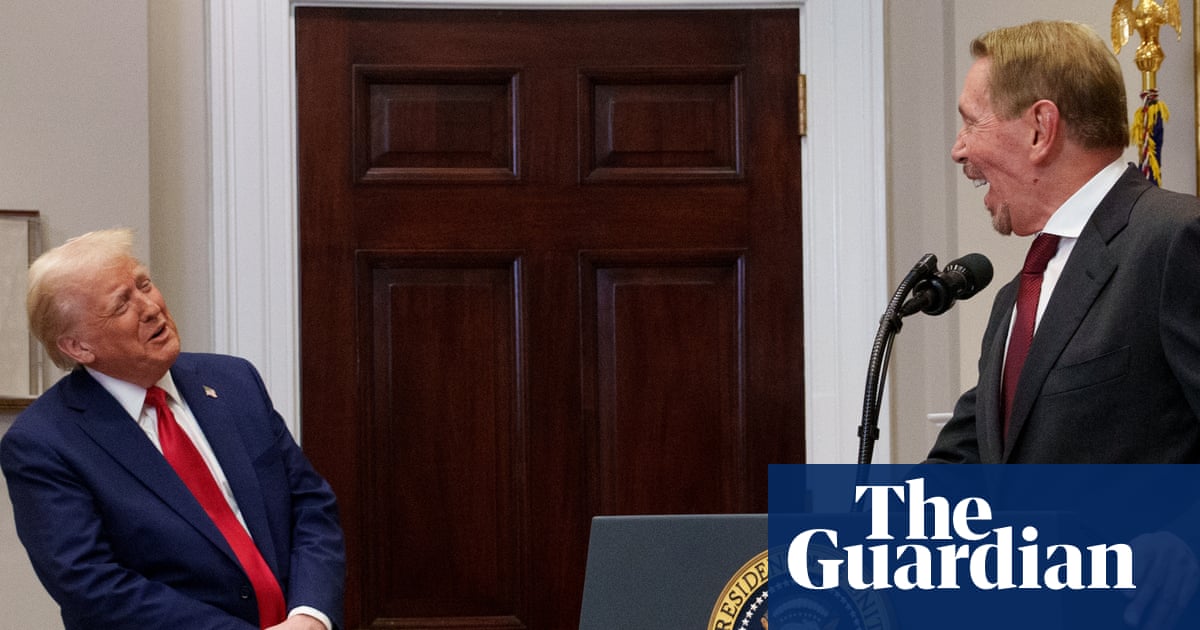The Trump administration presented a new plan to roll back regulations in the Endangered Species Act (ESA) on Wednesday, a move experts fear will accelerate the extinction crisis if adopted.
The proposed changes would allow the federal government more power to weigh economic impact against habitat designations, remove safeguards against future events – including the impacts from the climate crisis – and rescind the “blanket rule” that automatically grants threatened species the same protections as those designated as endangered.
Under the plan, newly listed animals and plants could face years without protections as details in tailored regulations are ironed out, delays that would only be exacerbated by the deep cuts to staffing at agencies charged with the work. The definition for “critical habitat” would also be narrowed, excluding areas where species don’t currently occupy, even if it was once considered their habitat.
The proposal is one of many attempts Donald Trump has made to dismantle critical wildlife protections in order to boost energy extraction and industrial access , even in the most sensitive and vulnerable wilderness areas across the US.
“This plan hacks apart the Endangered Species Act and creates a blueprint for the extinction for some of America’s most beloved wildlife,” said Stephanie Kurose, deputy director of government affairs at the Center for Biological Diversity in a statement, adding that the proposals are “a death sentence for wolverines, monarch butterflies, Florida manatees and so many other animals and plants that desperately need our help”.
The four new rules, put forward by the US Department of Interior in coordination with the US Fish and Wildlife Service and the National Marine Fisheries Service, largely echo moves that the US president made in his first term to limit the landmark 1973 environmental law, which were undone under Biden.
Trump administration officials claimed the proposal will reign in expansions of the ESA that they believe hindered resource development and created heavier burdens for businesses and landowners, bringing the statue closer to its original intent.
The rules would protect species with standards that “also respect the livelihoods of Americans who depend on our land and resources”, the US interior secretary, Doug Burgum, said in a statement. Fish and Wildlife Service director, Brian Nesvik, reaffirmed the administration’s commitment to “conservation that works hand in hand with America’s energy, agricultural and infrastructure priorities”.
The proposal comes amid an extinction emergency, as the climate crisis adds new challenges to recovery for scores of species already close to the brink. Roughly 1m species are threatened with extinction, according to a 2019 assessment from the Intergovernmental Science-Policy Platform on Biodiversity and Ecosystem Services (IPBES), including roughly 40% of amphibians, and a third of reef-forming corals, marine mammals, and sharks. Insects, considered the bedrock to biodiversity and the foundation of most ecosystems on earth, are in rapid decline. About 80% of insect species have yet to be identified and some are disappearing before they can be named.
Impacts to habitat can threaten a broader network of interconnected species and ecosystems. Landscape modification can trigger a devastating domino effect, where the loss of one species leads to the extinction of others that depend on it.
The US public broadly supports species protections. A 2023 poll found that 80% of registered voters favored full-funding of the ESA and 73% view biodiversity as important to their everyday lives.
Response to a separate proposal put forth by the the Trump administration earlier this year to limit the ESA regulatory framework, specifically targeting habitat protections that help safeguard most listed species, was met with strong pushback.
after newsletter promotion
Roughly 357,700 comments were submitted during the required 30-day period for the proposal on habitat, most vehemently against any changes in language that would undermine ESA protections.
That comment period closed months ago, and the proposed rules have not yet been adopted.
“There are regular folks out there making their voices heard and making it clear this is not what the public wants,” Sierra Weaver, a senior attorney with the non-profit the Defenders of Wildlife told the Guardian earlier this year.
A 30-day comment period for the new proposal will open on Friday and environmental advocates are readying another strong response.
“For decades, the vast majority of Americans have supported strong protections for our wildlife – from bald eagles to polar bears to Pacific Northwest salmon,” said Kristen Boyles, an attorney for Earthjustice. “Trump’s attacks on the Endangered Species Act seriously misread the room. Most people are not going to allow the sacrifice of our natural world to a bunch of billionaires and corporate interests.”
Oliver Milman contributed reporting

 German (DE)
German (DE)  English (US)
English (US)  Spanish (ES)
Spanish (ES)  French (FR)
French (FR)  Hindi (IN)
Hindi (IN)  Italian (IT)
Italian (IT)  Russian (RU)
Russian (RU)  3 hours ago
3 hours ago
























Comments